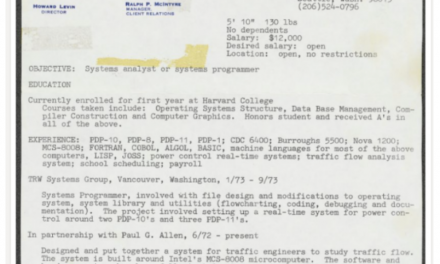2019 NEW YORK STATE RENT LAW
NYSTUDENTS ANALYSIS
How could the ‘strongest tenant protections in history’ end up hurting international students?
July 2019
– INTRO
Bill S6458

The @NYSenate just passed #S6458, the most progressive package of tenant protections in a generation. Stay tuned as we break down what's in the bill and update you on its progress. Let's get this bill signed into law! #HousingJusticeForAll pic.twitter.com/YBDVJ02zlr
— NYS Senator Zellnor Y. Myrie 米维 ?? (@SenatorMyrie) June 14, 2019
NYC RGB Adjustment


IMPACT ON FOREIGN COMMUNITIES
Below are screenshots of our communication with some of New York’s luxury apartment buildings :


As of the end of June, most of LIC’s apartments had indicated that they will no longer accept applicants that want to pay one year’s rent up front. Luxury rentals in Manhattan, Brooklyn followed up quickly in implementing this rule.
In other words:
UNDER THE CURRENT RENT LAW, LEASING WITH 1 YEAR RENT PRE-PAID IS IMPOSSIBLE!
“My God, suddenly we cannot select pre-pay as our payment method for our leases. Life is now officially even harder on us who study abroad.”
Client A, freshman of Fordham Graduate School, looking for a room in 101 West End with his friends.“I read the text of the bill. It didn’t say a word about ‘pre-pay’ . What happened?”
Client B, seeking to renew his lease in Jackson Park.“Well, what I want to rent is new buildings like Sky, Jackson Park. They certainly don’t fall into the category of rent-stabilized buildings which almost all dates back to the days before 1974. Why are they being controlled by this new law?“
Client C, still deciding.The Housing Stability and Tenant Protection Act of 2019
Security deposits
Security deposits are now limited to one month’s rent, and landlords must return them within 14 days of the tenant leaving the unit — along with an itemized statement covering any deductions made.
Days before a notice of rent raise
Landlords must give at least 30 days’ notice to tenants if they intend to raise the rent of a unit by more than 5 percent. The longer a tenant has been in place, the more notice a landlord must give of a large rent increase: 60 days’ notice for a tenancy or lease of one to two years, and 90 days’ notice to a tenant who has lived in a unit for at least two years or has a lease of at least that length.
Rules related to eviction
If a tenant has been evicted, judges are now permitted to postpone that eviction for up to one year (up from six months) if the tenant can’t find somewhere similar nearby to live. Housing courts also must consider how an eviction will affect the tenants’ health and well-being, including the school attendance of children who live in the unit.
Unlawful evictions of a tenant are now a misdemeanor, subject to a fine of $1,000 to $10,000.
Instead of 10 days to fix lease violations, tenants now have 30 days.
Fewer Application Fees
Application fees on apartments are limited to $20, even if they include a background check.
The Prohibition of Blacklisting Certain Tenants
The blacklisting of purportedly troublesome tenants by landlords is now prohibited.
Reports from mainstream media such as The New York Times will generally list above policy guidelines as the summary of the new law.
On the first glimpse, it is easy to think that the restrictions on the deposit directly lead big landlords to believe that it is not OK to accept the 1-year rent all at once, which lead to the policy changes we are suffering from.
There is a problem with this thinking, the deposit is not equal to the pre-paid rent, and these terms apply only to [rent-stable] apartments.
Look elsewhere in the texts. Read the bill carefully, and there is a crucial paragraph:

CORE TEXT
Except the categories of apartments listed aboveAll other apartments on the market, cannot take a deposit, or advance payment bigger than one month’s rent.
NEW YORK’S PERENNIAL HOUSING CRISIS
Rising asking rent?For a free market, this is not a problem, supply and demand will be balanced in the end.

WHAT DOES ALL THIS MEAN?
CAN’T PREPAY, WHAT OTHER PAYMENT METHODS CAN RENTERS CHOOSE?
1. PROVE OF PERSONAL INCOME
2. FIND A PERSONAL GUARANTOR
-
At least four recent payrolls
-
Two-year tax return
-
Recent bank statement
-
Social security number, state ID or passport
-
Proof of liquid assets (such as stocks, securities and bonds)
3. FIND AN INSTITUTION GUARANTOR
-
Insurent
-
The Guarantors
-
Jetty
-
Leap
-
Rhino
ANOTHER CONFUSION CAUSED BY THE NEW RENT LAW
S6571A
Developer Durst Organization has an important project under construction in the Astoria area. After hearing the final adoption of the new rental law, the spokesperson said “it can’t be built.”


ABOUT USWOO REALTY
USWOO Realty (美窝房产)is a real estate company under the OSSC Corporation dedicated to the North America real estate market. The company currently has more than 300 full-time real estate agents in the United States, headquartered in Boston, USA; also has branches in New York, California, and other places.
Since 2012, USWOO Realty has grown along with the various websites dedicated for the international students across the country and has long been committed to serving international students who study, live and work in the United States. In the past few years, the company has accumulated more than a thousand rental deals, with a turnover exceeding 60 million US dollars. Our business portfolio has been expanding along the way. We cover residential rentals, house buying, and selling, commercial real estate. Recently we have set our foot into the investment and construction site of the real estate business.
We have a unique perspective and resource advantage – at USWOO, team members have overseas study experience and are generally from well-known institutions in North America. We are closely following the trend of the US property market, and have long-term cooperation with top real estate developers. We also maintain close contact with other students’ organizations to listen to the real needs of our customers. Technically, we are the first professional real estate service provider in the industry to successfully use VR (Virtual Reality) technology on a large scale, so that each customer can watch the room remotely. At the same time, relying on the OSSC Corporation, we are also happy to provide a one-stop solution for young professionals who are studying and living in the states.
NYStudents is a rental brand of USWOO. In 2018, it continued to lead the Greater New York area rental market, ranking first in terms of market share among the brokerage companies in the similar category. In the Greater New York area, we have been working closely with mainstream real estate property developers and apartment management groups to provide exclusive listings and preferred services for a long time.
In our view, the core of USWOO’s real estate services is to combine our understanding of the overseas property market with specific needs through excellent communication.
Communicate well so that we can serve you well, this is USWOO.









